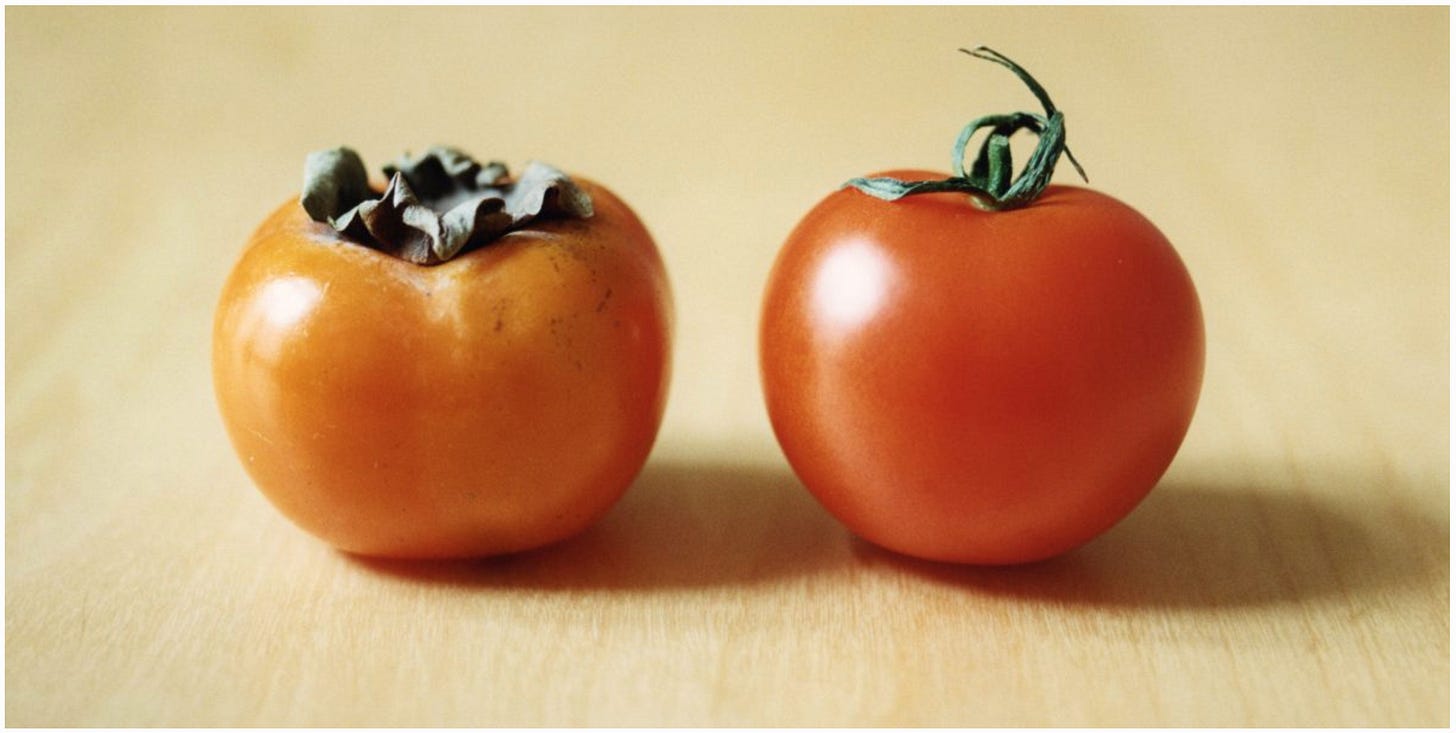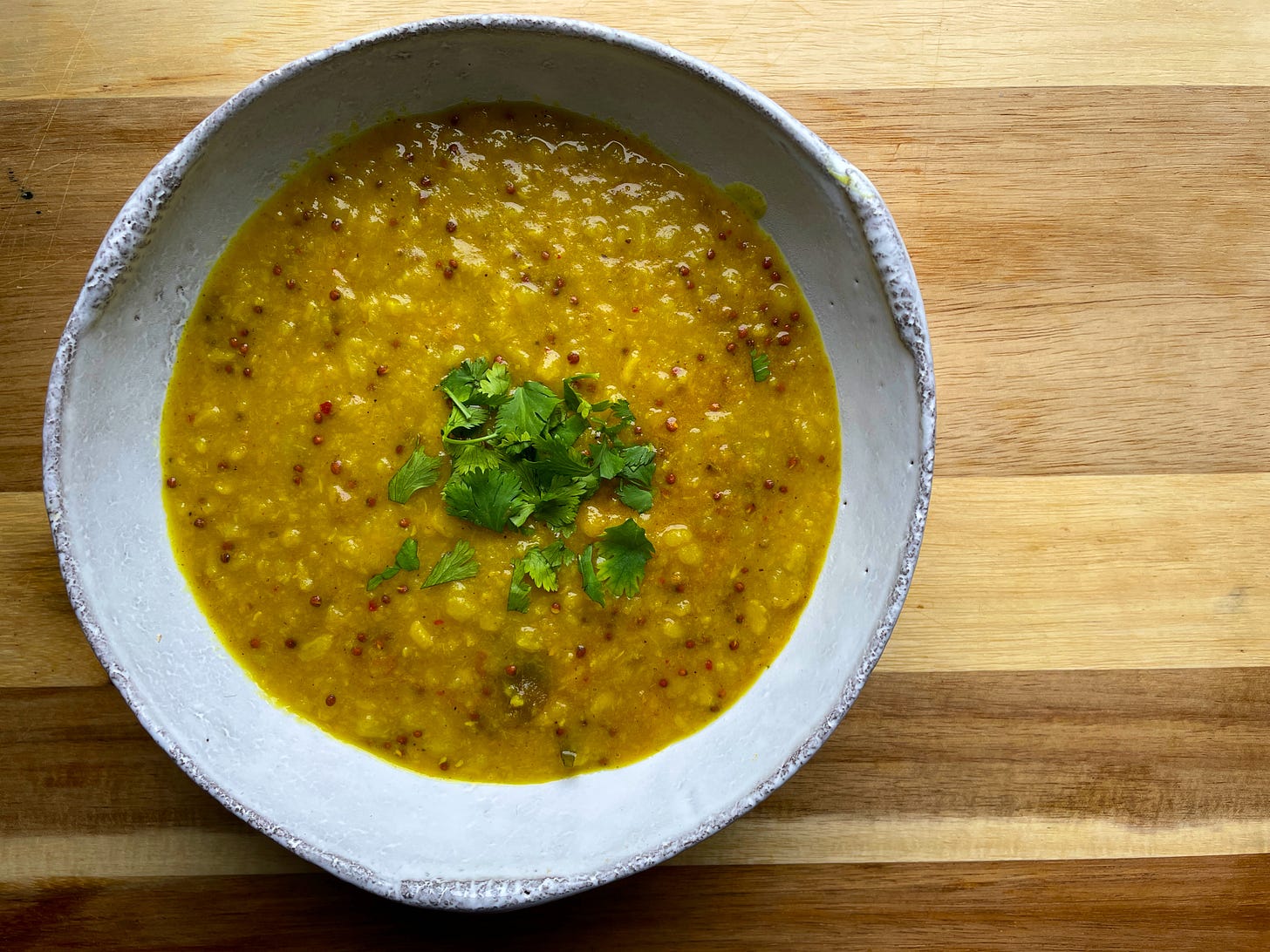Poignancy pulls focus…
The last tomatoes burn more brightly. The farmer told me that he had already pulled his plants out of the ground at last Saturday’s market. The last of the last tomatoes, chopped and going into my bag and into my pot of caponata. These past two weeks have been suffused with poignancy, the prima materia of creativity.
I have a little post-it on my desktop: “Timelessness requires appreciation,” which I wrote several years ago when contemplating the hummingbird, both the actual bright-shining being who flits past at this time of year, and the metaphorical one. It’s a creature who knows how to bend time, suspended mid-air in complete stillness while also beating its wings 80 times per second. A Peruvian-trained New Zealand shaman pointed out to me during one of our long-distance Zoom sessions as he installed an energetic hummingbird device in my solar plexus. What I came to learn through that intervention was that I, too, could stop time, hovering between the seconds by bringing the full force of my appreciative focus to bear on the beauty at hand in a way that ignites poetry and stops the world on a dime, just as when you pause to weigh the roundness of the very last tomato in your palm.
The word “poignancy” hints at this magic with its acute point, denoting something “painful to physical or mental feeling” since the 14th century, whether referring to a sauce or spice or an emotion, as evolved from the Old French for “sharp” or “pointed” and the Latin pungere, “to prick, pierce, sting.”
It hurts a little, the fading light of early fall. And things move fast. There’s no time for gooey, slow-footed melancholy—not yet. So, honoring the pace and the point, this week I tried my hand at the monostitch, a single-line poetic form first explored in the 19th century, inspired by the obsessive speed of that era, but also offering a single-swipe snapshot of inspiration as found in the wilds of the sensorial world.
Perhaps the first monostich was written by Guillaume Apollinaire: “et l’unique cordeau des trompettes marines”—“and the single string of sea trumpets,” (which the internet assures me is a 2 second read). I swoon for a translation of a 13th or 14th century rune poem etched in wood in Bergen, Norway, which could fall under the one-line, fragmentary definition. “My love ᛬ kiss me,” as do Allen Ginsberg’s “American Sentences” (Crescent moon, girls chatter at twilight on the bus ride to Ankara. —Allen Ginsberg, 1990.) For his part, poet Cor van den Heuvel has published a one-word haiku, “tundra,” which floats all alone on the center of a white page. But some of the best I’ve found are from the ‘70s, often called then monoku, highlighting their relationship to haiku.
“old woodcutter rests on the rings of the oak,” —Marlene Mountain (1976)
“an icicle the moon drifting through it,” —Matsuo Allard (1978)
Each monostitch urges our attention towards what’s fleeting and ready at hand. Reading them gives me that honed in feeling of stopping time with knife-point perception, like the hummingbird’s rushing pause, allowing the fragmentary to capture the whole. Writing them feels like appreciation.
So here’s mine: “vine-torn tomatoes no longer earth bound,” —JKJ (2023)
I hope you feel inspired to try writing a monostitch or doing whatever you love to do to capture the moment this week. If you do, please send it my way or post in the comments and we can wonder at the world together.
XJessica
The Season of Poignancy
Inspired by Chinese medicine master Lorie Eve Dechar, I put together my own table of correspondences related to the energetics of poignancy and this moment of the year. Do you agree?
Season of poignancy: late summer through earliest fall, earth season
Sound of poignancy: the last crickets; Gymnopedie, Erik Satie
Scent of poignancy: coriander seed
Color of poignancy: ochre
Feel of poignancy: fingertips pressing into wet earth
Taste of poignancy: ginger
Movement of poignancy: to cradle in the palm, to sigh
Kitcherie Cleansing
A casual offer—I’ll be embarking on a kitcherie cleanse next week. It’s about giving the liver support by undertaking an ayurvedic monodiet for 7 days, while also, if desired, using some natural purgatives to detoxify. I love undertaking this kind of practice in October, when it can give a boost to the immunity system. Plus I love to eat kitcherie and dal—so it’s not a burden! If you would like any friendly support while doing the same, please let me know and we can do it together in tandem. (Just to say—I’m offering this not as a coach—because I don’t know if a cleanse is the right thing for your body rn—but just as someone who loves to do it and can share from my own experience.) Just send me a dm!
Our recipe for Perfect Golden Dal
1c yellow lentils
6 curry leaves
2 T butter or ghee
1t + cumin
1t coriander
1T grated ginger
1T black mustard seeds
lots crushed black pepper
1/2t dry turmeric
3/4t salt
minced chili pepper
Using the Instapot, or a soup pot, melt the butter or ghee and add the spices. When fragrant and sizzling add the ginger, minced chili and curry leaves. Add the lentils and stir for a moment. Then add 4 cups of water and allow to cook until you have soup. In the Instapot, we like to pressure cook for 22 minutes to break any lectins in the lentils, which eases digestion. Top with cilantro.
A Paragon of Poignancy
Samuel Beckett didn’t understand, perhaps, his impact. “I find it impossible to write or speak about my work,” Beckett explained. “My only contact with it is from the inside and I understand very imperfectly the effect it has on readers and critics.”
As photographer Steve Schpairo described their portrait session, which resulted in the image above, “Beckett seemed introspective and engrossed in his own world. Most of the time, I doubted that he was even aware I was there, and I am sure cared less.” And yet, as Schpairo pointed out, “Nothing escaped his eye. He was attentive to every small detail, examined each prop, sometimes even with a magnifying glass. He studied everything. The parrot in the cage and the dog and cat in the basket delighted him. He spent many hours observing their movements.”
Beckett was a master of both leave-taking and of capturing life’s ever-surprising twists with his relentless focus and with the poignant tip of his pen.
Here’s a favorite Beckett quote, describing a very particular, early-fall sense of ending… the last, but one but one.
“This time, then once more I think, then perhaps a last time, then I think it’ll be over, with that world too. Premonition of the last but one but one. All grows dim…” —Samuel Beckett, Molloy, 1951.
A note on the newness
So, my friends, you may have noticed that the range of my coverage via this substack channel has broadened. I truly hope you’ll enjoy that—please let me know if you do. I will continue to offer foundational wellness practices to support you in your creative work, as well as more esoteric inspiration on the topic of creativity and how it interplays with the cycle of the seasons. It’s all right there at the crossroads of creativity, care, and tantalizing curiosity.
A note on the name: the evocative phrase “the means whereby” was offered by FM Alexander (founder of the Alexander Technique) to help his students prioritize the creative process. “The act performed,” he explained, “is of less consequence than the manner of its performance”.
If you get something out of this content, please pass it on!








The final chorus. The stubborn cheep cheeps in the colding damp night.
Exhaustion, a brittle twig in the February bitter dawn...